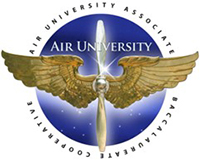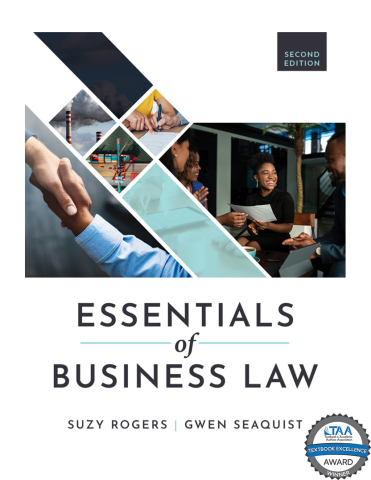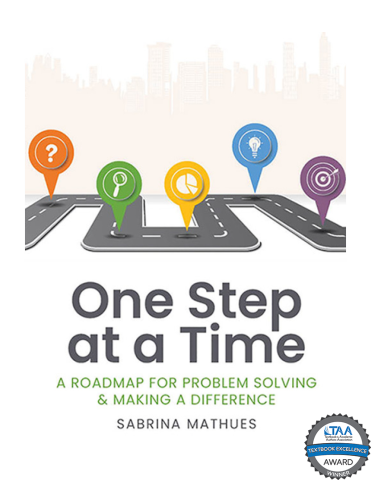Questions? Request Information
Develop Your Leadership Skills
Businesses need managers who are prepared to analyze solutions to problems, develop goals, motivate teams, plan and lead change, and execute effective strategies. In the BA in Organizational Management degree program from the University of Arizona Global Campus (UAGC), you will build the skills you need to become an inspirational and impactful leader in today’s complex and competitive workforce. These skills will serve as the foundation of your business career, immersing you in critical knowledge concepts and skills that employers value.
In your organizational management courses, you will examine the human side of managing organizations, including communications, group behavior, decision-making, human resource management, and ethics. Upon completion of the program, you will be able to:
- Examine one’s personal leadership style and its appropriateness to various organizational situations
- Formulate management-level decisions within the organizational framework
- Formulate strategies for effective team development
- Analyze alternative solutions for complex business problems
- Compare individual characteristics that influence work behaviors and organizational effectiveness
- Analyze the impact of social problems on the workplace at the individual, group, organizational, and societal levels
UAGC Award-Winning Curriculum
Military Students $250.00/credit
Undergraduate Courses $460.00/credit
Technology Fee** $115.00/course
Books and Other Class Materials** $125.00/average per course
Graduation Fee $150.00
Total Program Cost See UAGC Catalog¹
¹Keep in mind that this figure doesn’t factor in any potential discounts, partner benefits, or impact of accepted transfer credits, if eligible.

UAGC offers enrolled students access to ScholarshipUniverse, a platform that tailors external scholarship opportunities to your unique situation, making it easier to find and apply for scholarships.
UAGC is proud to provide reduced tuition rates for our academic and corporate partners, helping community college transfer students and corporate employees earn their degrees at a lower cost.


Organizational Management Degree Curriculum Overview
Your coursework includes studies in strategic planning, leadership, sociology, HR management, and more. You can also add an emphasis to your degree to provide further focus to your studies.
To earn your Bachelor of Arts in Organizational Management at the University of Arizona Global Campus, you must complete 120 credits. You will need to complete 30 upper-division credits, of which 18 credits must be from the major program. A total of 30 credits must be completed at Global Campus to meet the residency requirement. You may be able to transfer approved credits from community colleges, other previous college coursework, or other life experiences such as military service or job training toward your degree.
This program is not designed to meet the state educational requirements for a specific professional license or certification in any state. Students seeking licensure or certification in a particular profession shall carefully research the requirements prior to enrollment and regularly review the requirements as they are subject to change. Requirements vary by state. The University of Arizona Global Campus does not guarantee that any professional organization will accept a graduate’s application to sit for any exam for the purpose of professional certification. Further, a criminal record may prevent an applicant from obtaining licensure, certification, or employment in their field of study.
The Online Teaching Support Certification recognizes programs that require all online faculty to undergo training in best practices for online course delivery, provide faculty with ongoing pedagogical support, encourage faculty professional development to increase their knowledge and skill in online teaching, emphasize instructor availability and feedback to learners, and collect and use feedback from learners to improve online teaching. Learn More

The Online Learner Support Certification recognizes programs that provide all the critical student and academic services needed for learner success and use learner feedback to continuously improve those services.

The Air University Associate to Baccalaureate Cooperative (AU-ABC) is a partnership between the University of Arizona Global Campus and the Community College of the Air Force (CCAF). The BA in Organizational Management is part of this agreement. The agreement allows students who have earned an Associate in Applied Science degree from CCAF to transfer their credits toward this degree at UAGC, significantly reducing the time required to complete their degree. Eligible students will need no more than 60 additional credits to finish their BA in Organizational Management. An example of how credits may transfer under this agreement can be found here.

What Can I Do with a Bachelor’s in Organizational Management?
With a BA in Organizational Management, you may consider pursuing a career in any of the following positions:
- Management Analyst
- Business Analyst
- Human Resources Generalist
- Business Manager
- General Manager
- Human Resources Manager
You have many options when you graduate with a degree in organizational management. You may choose to enter an area of business or industry for which your in-depth knowledge of organizational management has prepared you. This degree can prepare you for a career as a leader within organizations, or you may be able to start your own businesses, or pursue careers with local, state, or federal government.
Gain insights into the organizational management job market by reviewing the Bureau of Labor Statistics market outlook report.
I loved the interaction and learning environment that facilitated growth and understanding for my professional self.
BA in Organizational Management FAQs
-
A Bachelor of Arts in Organizational Management focuses on developing skills in leadership, communication, and strategic planning within organizations. It emphasizes understanding organizational behavior, managing teams, and driving change to achieve organizational goals.
-
While both degrees cover business principles, organizational management focuses more on the human element within organizations, such as leadership, team dynamics, and organizational culture. Business administration often has a broader scope, covering areas like finance, marketing, and operations.
-
Your coursework includes studies in strategic planning, leadership, sociology, HR management, and more. You can also add an emphasis to your degree to provide further focus to your studies.
-
Studying organizational management at UAGC prepares you to pursue leadership roles and careers focused on improving organizational effectiveness. Your program will equip you with the skills to manage people, processes, and change, which are valuable in a variety of industries and settings.
See What Else UAGC Has to Offer
Questions? Request More Information
To access this rate using the Liberty Grant, only eligible undergraduate active duty service members, members of the National Guard, Reservists, spouses of active duty, members of the National Guard and Reservists, Department of Defense employees using Tuition Assistance (TA), and civilian employees of the United States Coast Guard (only if utilizing Military Tuition Assistance) will qualify.
**
The Technology Fee covers access to University systems such as the online classroom, the Student Portal, and other academic resources. The Technology Fee and the Course Digital Materials (CDM) Fee are fully refundable if a student does not attend beyond Day 3 of a course (Week 3 if covered under the University of Arizona Global Campus Promise Refund Schedule). After this time, the fee becomes non-refundable. Students are charged the Technology Fee for repeated coursework. Students are not charged the CDM fee for repeated coursework if previously charged.
†
The transferability of credits is subject to the University of Arizona Global Campus transfer credit policies and requires the submission of official transcripts. The official transcripts will be evaluated by the Registrar’s Office to determine the credits that will officially apply toward a UAGC degree program. Credits must be earned at the same degree level in order to be applied. Additional restrictions may apply. See the UAGC Academic Catalog for full undergraduate and graduate transfer policies.






